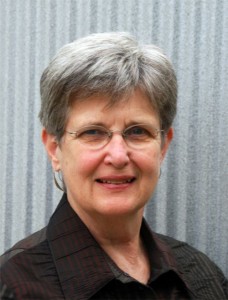Note – The following message is from AAW Board Member Jean LeGwin.
 One of the primary benefits of AAW membership is access to vast educational resources that are available only to members. These include the American Woodturner archives, the AAW website forums, and chapter libraries, to name just a few. But I wonder how many of us think of ourselves as a part of that resource pool. We look to AAW as the source for new techniques, new projects, new points of view, but do we stop and think that we, as individuals, possess a wealth of information that could be passed on to others? Learning to improve our own skills and increase our knowledge is complemented by teaching what we know to others.
One of the primary benefits of AAW membership is access to vast educational resources that are available only to members. These include the American Woodturner archives, the AAW website forums, and chapter libraries, to name just a few. But I wonder how many of us think of ourselves as a part of that resource pool. We look to AAW as the source for new techniques, new projects, new points of view, but do we stop and think that we, as individuals, possess a wealth of information that could be passed on to others? Learning to improve our own skills and increase our knowledge is complemented by teaching what we know to others.
Next time you are at a club meeting or symposium, take a minute to look around you. Most likely the majority of those you see will be over 60. The craft we fell in love with is an ancient one, but unless we pass along our love of it and the skills needed to practice it, we may be witness to its being relegated to the living museums of the world.
Teaching others our craft is an opportunity to bring woodturning into our communities while at the same time expanding our own experience and improving our own skills. Many of us think that we are not experienced enough, are not good enough, to teach anyone else. However, I believe the moment we grasp the safety requirements to use a lathe and possess some rudimentary skills, we can begin teaching. There is a saying that is frequently quoted among woodturners which captures the essence of this approach: See one, do one, teach one. If you have basic competence in using a roughing gouge to turn a cylinder from a square piece of wood, you are ready to teach.
To quote a good friend, “Mastery is more than a lifetime’s work, but the joy of woodturning begins at the first cut.” Do you remember the thrill of turning your first cylinder? Or your first bead? Many years after my first attempts at making a cylinder, I still remember the excitement of making chips fly. These days I am thrilled to help someone else have that same experience and witness their becoming hooked on turning
So how does one start teaching? There are many ways to begin. Perhaps the easiest is to join with other club members and offer to give classes at a local school, a scout troop, a community development center, or at a county fair or museum. Our local club has had great success in approaching schools with an offer to demonstrate our craft or teach after school sessions. Having a demonstration booth at the local county fair and other local events has sparked an enormous amount of interest and a few new club members. We have even been asked to teach classes at the local community college. The Jacksonville, FL, club started a program for boys at risk with their Safe Harbor Program. Bob Schrader works on his own, teaching 40 kids a week at the Kingsport, TN, Boys and Girls Club. Beth Ireland, with her Turning across America program, spent a year traveling around the United States teaching turning from the back of a van at parks, schools, and clubs, and introduced thousands of people to turning.
We in AAW have opportunities and challenges ahead in increasing awareness of turning and passing along our craft to the next generation. Woodshop is being phased out of many school systems, and the young of today have few opportunities to learn traditional hand skills. We have the opportunity to develop programs at the local and national level to fill this void. We have the challenge of expanding our membership to a wider audience of women, minorities, physically challenged, and young and old. We have the challenge of integrating the artistic sculptural use of the lathe with the tradition of furniture making and expanding the reach of our craft into the art world.
Outreach efforts open the eyes of many people to our craft, help grow our chapters, and provide immense satisfaction for all who participate. If you are bored with the thought of making yet another bowl, get involved in community outreach. You will find great rewards and enormous satisfaction in sharingyour skills with others.
–Jean LeGwin

